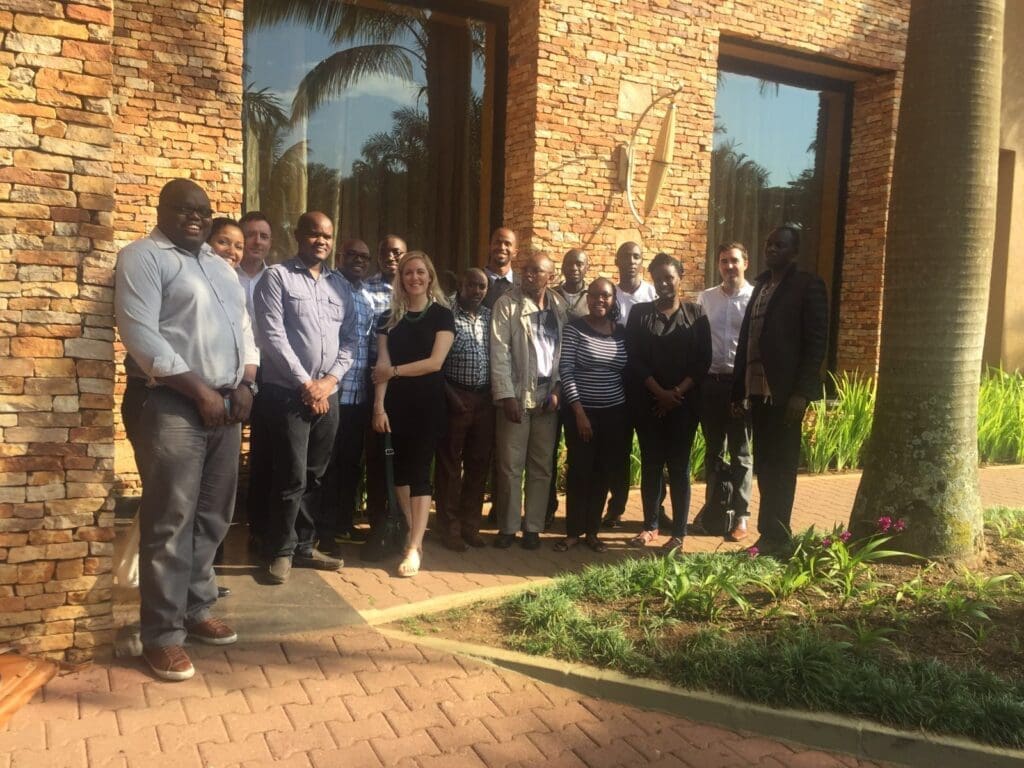In 2016 MLDI delivered its second East African Litigation Surgery (EALS) in Kampala, Uganda between the 8 -11 August 2016. The EALS was a training project which aimed to enhance the knowledge and skills of lawyers in East Africa, enabling them to provide legal defence to journalists, bloggers and media outlets. This was to enable them to challenge freedom of expression violations in national and international courts.
12 participants attended the training from Kenya, Rwanda, Tanzania and Uganda. In late 2017, MLDI carried out an outcome evaluation of the training. Below is a case study of one of the participants of the training featured in the report. Click here to read the full report and more case studies.
Case Study: Louis, Rwanda
Louis heard about the EALS training through social media and signed up because he thought it would be a good way to learn more about freedom of expression and cybercrime issues that he encountered a lot in his former work place, Lawyers for Hope.
He says he was grateful for the training which he felt impacted his work by teaching him the fundamentals of freedom of expression and strategic litigation and making him more aware of different aspects of the law and cybercrime legislation. “The training has advanced our knowledge in an area that is lacking in East Africa, and at a time when these issues are most acute” he says, also adding that it was very timely, given the internet shutdowns that happened in the months following the training.
He also felt that the training “upgraded” his knowledge on regional laws and mechanisms, especially on how to present cases at the African Commission and African Court. Unfortunately, Rwanda has withdrawn from some regional human rights mechanisms, which has is a major barrier for him taking these kinds of cases.
Most important for him however, was the network of lawyers across East Africa that it created. Since the training, Louis has been working closely with one of the Tanzanian lawyers he met at the training and helped on some of his cases. He has become very active in a Tanzanian media forum, providing legal advice and guidance to journalists on how to deal with harassment, demands to disclose sources and on new cybercrime laws. He thinks this would not have happened if he did not attend the EALS and met the other lawyers there. He also keeps in touch with the other lawyers informally to share tips and advice.
“Overall the training was great for a young lawyer like me”
Going forward, Louis mentioned that it would be useful for MLDI to provide more updates on case law and jurisprudence and to build a database they can refer to for freedom of expression matters. Also, he said that having regular webinars or skype conferences between participants would be beneficial to keep the momentum going and to share updates and learning.
He speaks positively about the training manual provided, finding it very informative, specific to his interests and which he often refers to when drafting legal documents for freedom of expression cases that he is collaborating on. “Overall the training was great for a young lawyer like me”.
Recent Case Studies
“The training has advanced our knowledge in an area that is lacking in East Africa at a time when these issues are most acute”
The precarious state of press freedom in Turkey, entwined with a deteriorating democratic environment, poses significant challenges to journalists. Increasingly they face arbitrary arrests, legal threats, and increasing violence in their pursuit of reporting truth. In response to these threats, the Media and Law Studies Association (MLSA), our partner, actively defends press freedom and human […]
“The training has advanced our knowledge in an area that is lacking in East Africa at a time when these issues are most acute”
23 October 2023 marks one year since the killing of prominent Pakistani journalist and news anchor for Pakistani broadcaster, ARY News, Arshad Sharif. Sharif was fatally shot at close range by Kenyan Police at a roadblock near Nairobi. To this day, a transparent, independent and effective investigation into the circumstances of his death has not […]
“The training has advanced our knowledge in an area that is lacking in East Africa at a time when these issues are most acute”
November 2nd marks the International Day to End Impunity for Crimes Against Journalists. The threats and dangers that constitute a stark reality for many journalists reinforce the importance of this day. Every year journalists are killed, tortured, and harassed for carrying out their work. Over 1,600 journalists have been killed since 2003 with a sharp […]



